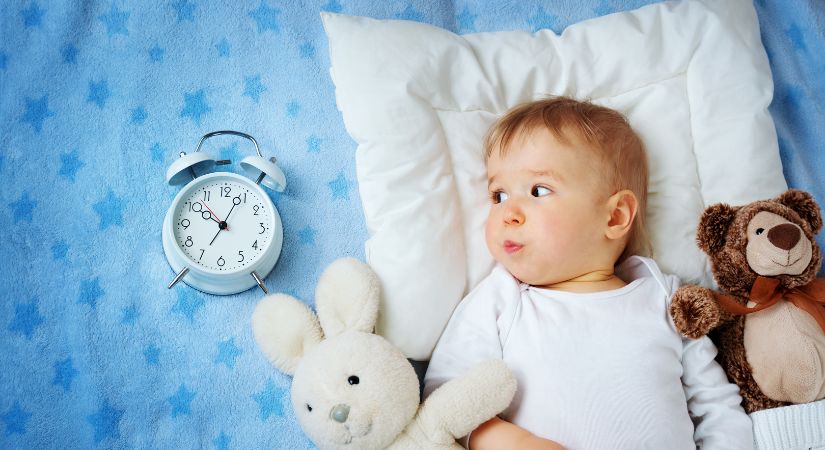Routine in early years helps children feel safe and secure in their environment, gives them a sense of security and stability, and offers children an opportunity to get excited about what’s ahead. Establishing a consistent routine for young children lays the foundation for their overall development, fostering not just physical health but also nurturing mental and emotional wellbeing. In this blog, we will delve into the benefits of routine for young children and discuss how Early Years settings can effectively implement routines while supporting parents and carers to do the same at home.
The benefits of Routine for Young Children
From a young age, children start to gain an awareness and understanding of everyday events, processes and procedures enabling them to start to anticipate and learn what is expected of them as their environment becomes predictable with the structure of a routine, which is also crucial for supporting and reinforcing behaviour and establishing healthy, constructive habits.
Routine offers young children a sense of security and emotional stability. Predictable patterns of daily activities provide reassurance and reduce anxiety. By knowing what to expect next, children develop a sense of control and confidence, strengthening their emotional well-being.
Regular routines also encourage self-discipline as children learn to follow a structured sequence of activities. Through repetition, they develop essential life skills, such as self-care, hygiene, and organising their belongings. As children gain independence within routines, their confidence and self-esteem flourish.
Consistent routines support the development of cognitive and social skills. Through repetitive actions, children solidify their understanding of cause and effect, time concepts, and sequencing. Routines also offer opportunities for interaction with peers, caregivers, and educators, promoting social learning and communication skills.
They also support children’s ‘body clocks’, contributing to regular bowel movements, well-balanced nutrition and meal times, naps, and sleep times, healthy play, and the ability to recognise time to wind down. As well as this, routines create and deepen strong bonds with peers, family members, and key workers, whilst the repetition of key tasks also provides opportunities to help develop fine motor skills.
Implementing Routine in Early Years Settings
Early Years settings play a vital role in establishing and implementing routines for young children. Here are key strategies to consider:
Promoting Consistency and Structure
- Create a daily schedule that provides a consistent framework for activities such as mealtimes, nap times, playtime, outdoor time, and learning activities.
- Display visual cues, such as pictures or symbols, to help children understand the sequence of events and transitions.
Establishing Predictable Routines
- Maintain consistent routines for essential activities like handwashing, toileting, and diaper changes.
- Provide clear and simple instructions during transitions to help children understand what is happening next.
Incorporating Transitions Effectively
- Use transition activities, such as singing a song or reading a book, to help children move smoothly between activities.
- Plan transition times to allow for individual needs, respecting different learning speeds and temperaments.
Supporting Parents and Carers in Implementing Routine at Home
Early Years settings can offer valuable support and guidance to parents and carers in creating consistent routines at home.
Encourage open communication: Encouraging open communication between Early Years settings and parents ensures a unified approach to routines. Sharing a child’s routine whilst in childcare is a key element to developing a partnership with parents. The eylog daily diary feature enables nurseries to record key information about a child’s day at the nursery – what the child ate, when the child slept, bottles, nappy changes and toileting. This can be shared with parents daily along with the child’s register, a summary of the day’s observations and any additional notes which parents can view through the eyparent app and web portal.
Highlight success with parents: Highlighting success stories of routine implementation can inspire and motivate parents and carers. Sharing experiences of parents and carers who have successfully established routines at home can provide real-life examples and practical insights.
Teach parents the importance of routine: Offer workshops or training sessions for parents to learn about the importance of routine and how to implement it effectively at home. Share informative materials, such as printable routine charts or online resources, to assist parents in creating daily schedules.
Share tips for maintaining consistency: Encourage parents to prioritise consistency by setting dedicated times for daily activities and establishing a regular bedtime routine. Provide suggestions on how to adapt routines to fit different family structures, including single-parent households or families with multiple caregivers.
Routine plays a crucial role in the healthy development of babies and toddlers. By implementing consistent routines in Early Years settings and supporting parents and carers in establishing routines at home, we provide young children with stability, emotional well-being, and opportunities for growth. Let’s prioritise routines to create a nurturing environment that fosters the optimal development of our little ones.

